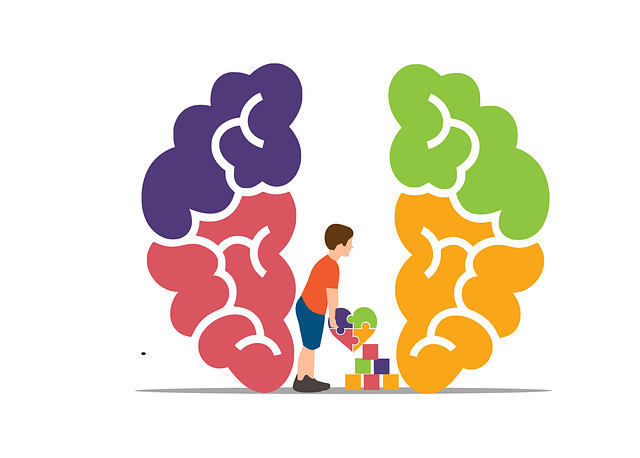Depression, a complex mental health issue, can be proactively managed in Arvada, Colorado, thanks to a supportive community and resources like Arvada Alcohol Abuse Therapy. Integrated treatment is key, addressing co-occurring alcohol abuse that often masks depression. Lifestyle changes, including balanced diets and exercise, stress management techniques, and social engagement, are vital for prevention. Cognitive behavioral therapy (CBT) and support groups through Arvada Alcohol Abuse Therapy offer effective coping strategies and community. Early intervention and professional help from services like Arvada Alcohol Abuse Therapy are crucial for managing symptoms and promoting emotional well-being.
Depression is a prevalent yet manageable condition that affects millions. This article explores comprehensive prevention strategies, offering insights into recognizing depressive signs and implementing effective solutions. We delve into lifestyle changes proven to boost mental well-being, highlight the benefits of therapy and support groups, and provide coping mechanisms for proactive mental health management. Additionally, we emphasize the significance of early intervention, guiding readers on when to seek professional help, such as Arvada Alcohol Abuse Therapy, for a healthier, happier life.
- Understanding Depression: Recognizing the Signs and Symptoms
- Lifestyle Changes for Improved Mental Health
- The Role of Therapy and Support Groups in Prevention
- Effective Coping Mechanisms to Fight Off Depression
- When to Seek Professional Help: Early Intervention Strategies
Understanding Depression: Recognizing the Signs and Symptoms

Depression is a complex mental health disorder that significantly impacts an individual’s daily life and well-being. Recognizing the signs and symptoms early on is crucial in preventing and managing it effectively. Often characterized by persistent feelings of sadness, loss of interest in activities once enjoyed, changes in appetite and sleep patterns, fatigue, difficulty concentrating, and thoughts of worthlessness or guilt, depression can manifest differently in each person.
In Arvada, Colorado, where the vibrant community offers numerous resources for mental wellness, seeking help is a proactive step towards better mental health. Alcohol abuse, a common co-occurring disorder, often masks underlying depression, making it crucial to address both simultaneously. Through specialized Arvada Alcohol Abuse Therapy, individuals can uncover and develop inner strength while exploring personal struggles. Additionally, the city’s Mental Wellness Podcast Series Production and coaching programs cater to those seeking tools for self-improvement and ongoing mental wellness development.
Lifestyle Changes for Improved Mental Health

In the pursuit of depression prevention, implementing lifestyle changes can significantly impact mental health. One crucial aspect is adopting a balanced diet rich in nutrients essential for brain health. Reducing sugar intake and incorporating more whole grains, fruits, and vegetables can stabilize mood and energy levels. Additionally, regular physical activity releases endorphins, which are natural mood lifters, making it an effective strategy to combat depression.
Another vital component involves managing stress through techniques like mindfulness meditation and yoga. These practices promote relaxation and enhance one’s ability to cope with challenging situations. Moreover, fostering positive relationships and engaging in social activities can provide a support system that alleviates feelings of loneliness and isolation—common triggers for depression. For those dealing with substance abuse issues, seeking professional help through Arvada Alcohol Abuse Therapy can be transformative, addressing underlying causes and promoting long-term mental well-being.
The Role of Therapy and Support Groups in Prevention

Therapy plays a pivotal role in depression prevention by providing individuals with effective coping mechanisms and tools to manage stress and negative thoughts. Through various therapeutic approaches like cognitive behavioral therapy (CBT), individuals can learn to identify and challenge distorted thinking patterns, enhance positive thinking, and develop healthier ways of dealing with life’s challenges. This proactive approach not only equips people with long-lasting strategies but also fosters resilience against depressive episodes.
Support groups, another powerful tool in the prevention arsenal, offer a sense of community and understanding that can significantly impact mental health. Sharing experiences within these groups reduces the stigma associated with mental illness and encourages members to open up about their struggles. In the context of Arvada Alcohol Abuse Therapy, support groups provide a safe space for individuals to address underlying emotional issues, learn from one another’s journeys, and develop effective strategies for burnout prevention, which is crucial for healthcare providers frequently facing high-stress situations. By combining therapy with supportive group settings, individuals can cultivate robust mental well-being, thereby minimizing the risk of depression.
Effective Coping Mechanisms to Fight Off Depression

Depression can be a complex and persistent condition, but implementing effective coping mechanisms can significantly aid in its prevention and management. One crucial strategy is to seek professional help through Arvada Alcohol Abuse Therapy or similar specialized services. These therapies provide individuals with tools to understand their emotions, challenge negative thought patterns, and develop healthier coping strategies.
Emotional Well-being Promotion Techniques focus on fostering inner strength and resilience. This can include engaging in regular physical activity, practicing mindfulness meditation, maintaining a balanced diet, and prioritizing quality sleep. By adopting these habits, individuals can improve their overall mental health and better equip themselves to handle stressful situations. Additionally, Mental Illness Stigma Reduction Efforts play a vital role in encouraging open conversations about depression, fostering support networks, and promoting understanding within communities.
When to Seek Professional Help: Early Intervention Strategies

If you’re experiencing persistent feelings of sadness, hopelessness, or loss of interest in activities once enjoyed, it’s crucial to recognize when to seek professional help. Early intervention is a vital strategy in depression prevention and can significantly impact long-term mental health outcomes. Many individuals may hesitate to reach out for support, but taking that first step towards Arvada Alcohol Abuse Therapy can be life-changing.
Recognizing the signs of depression early on enables the development of inner strength and resilience. Through compassion cultivation practices and self-esteem improvement techniques, individuals can gain valuable tools to combat depressive episodes. By addressing these issues promptly, one can foster a healthier mindset and create a more robust coping mechanism, ultimately preventing the escalation of symptoms.
Depression prevention is a multifaceted approach that involves understanding, proactive lifestyle changes, and seeking appropriate support. By recognizing signs early on and implementing strategies such as regular exercise, healthy eating, and therapy, individuals can effectively manage their mental health. For those in Arvada dealing with alcohol abuse alongside depression, specialized services like Alcohol Abuse Therapy offer a crucial step towards holistic recovery. Remember, taking proactive measures can significantly reduce the risk of falling into a depressive episode, leading to a more balanced and fulfilling life.














